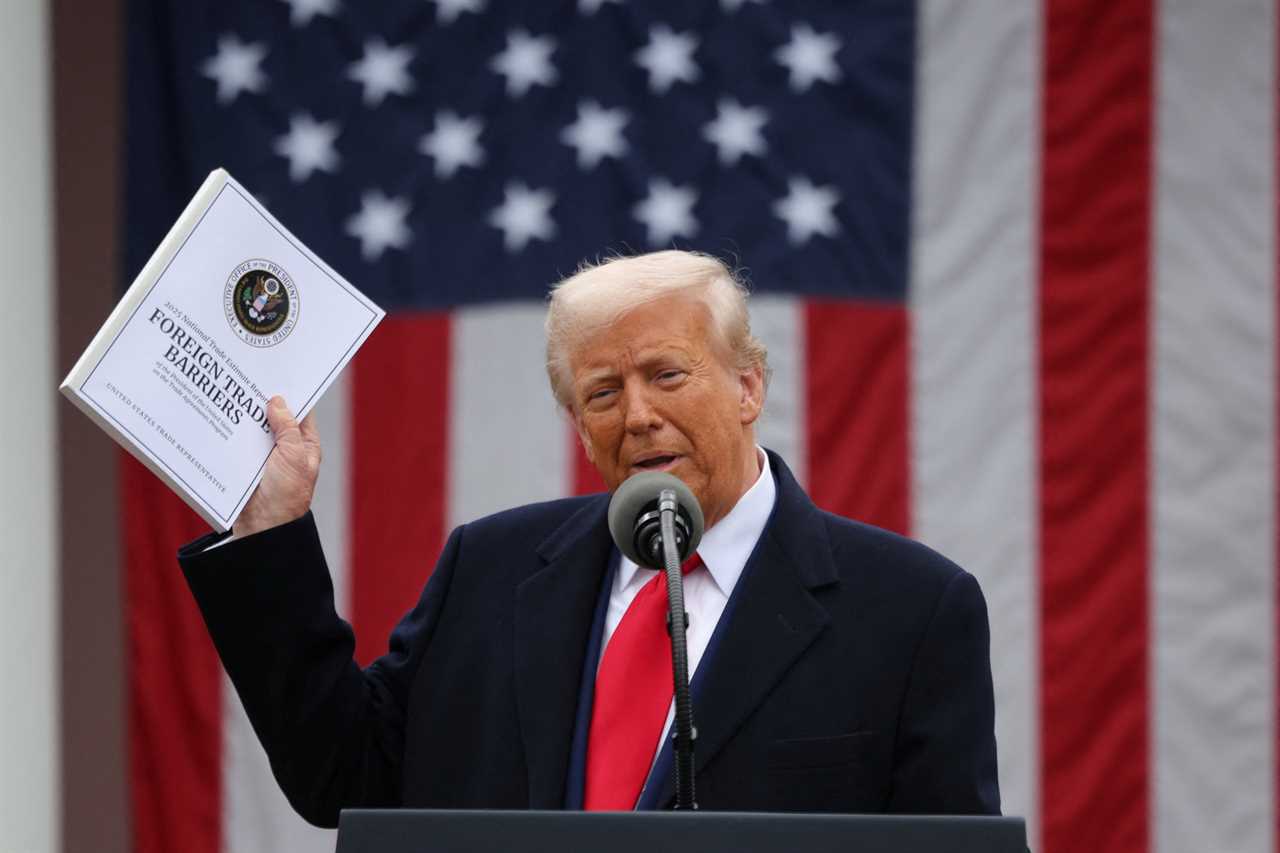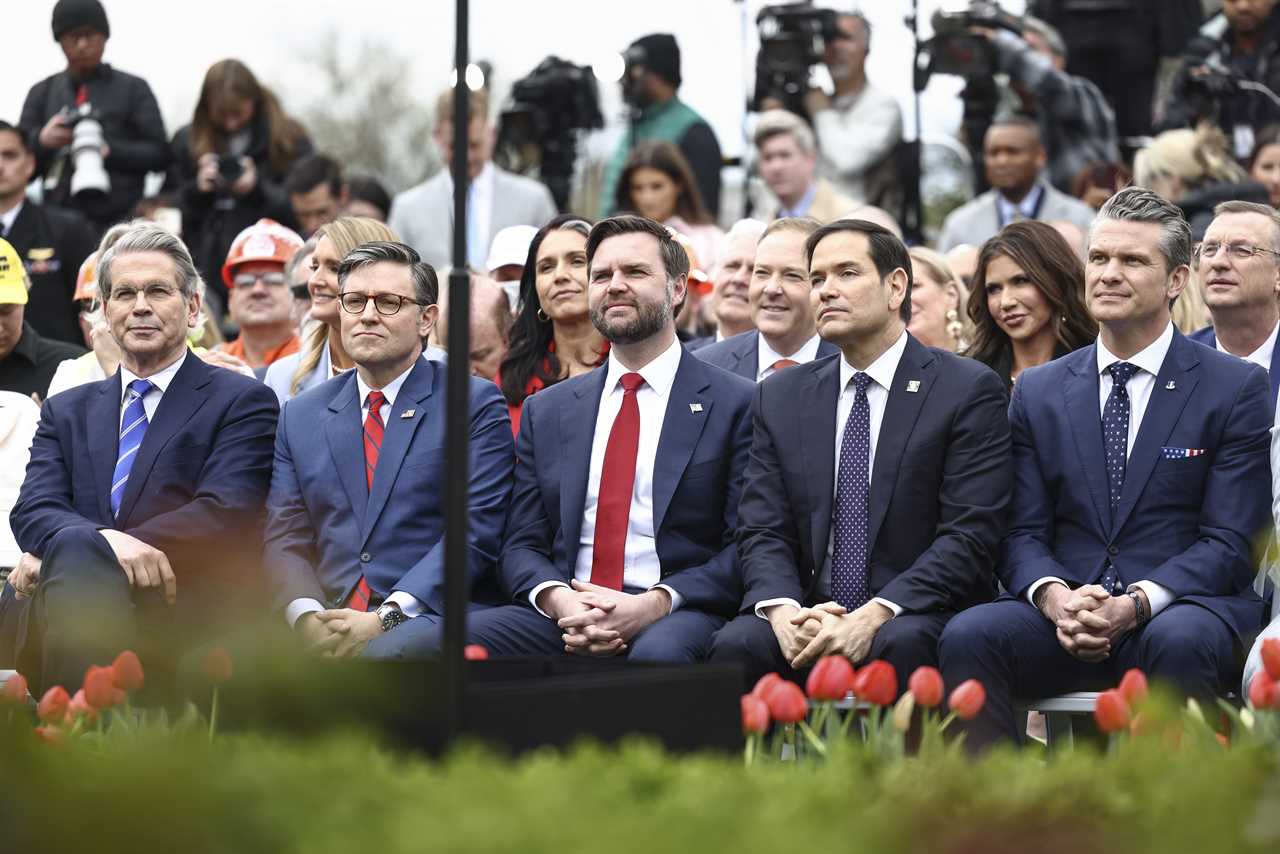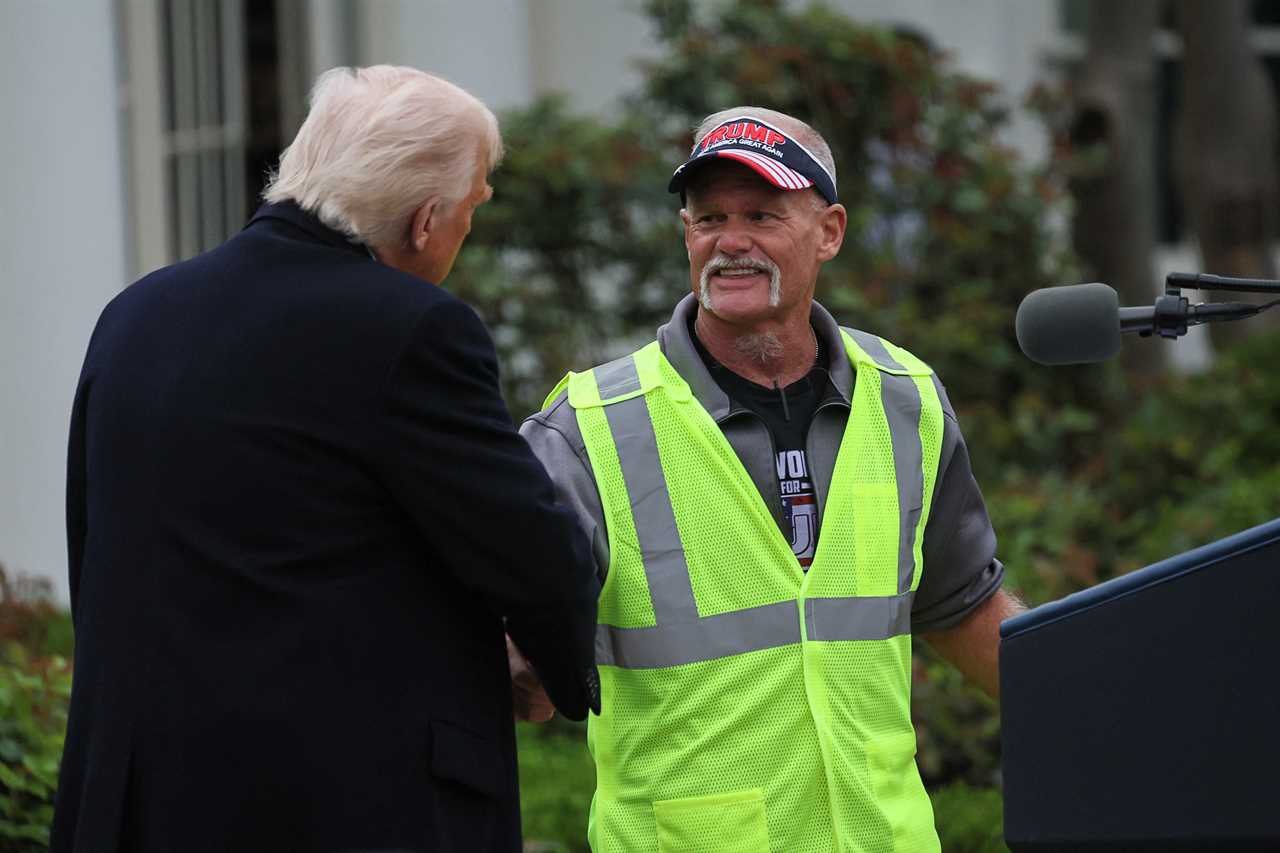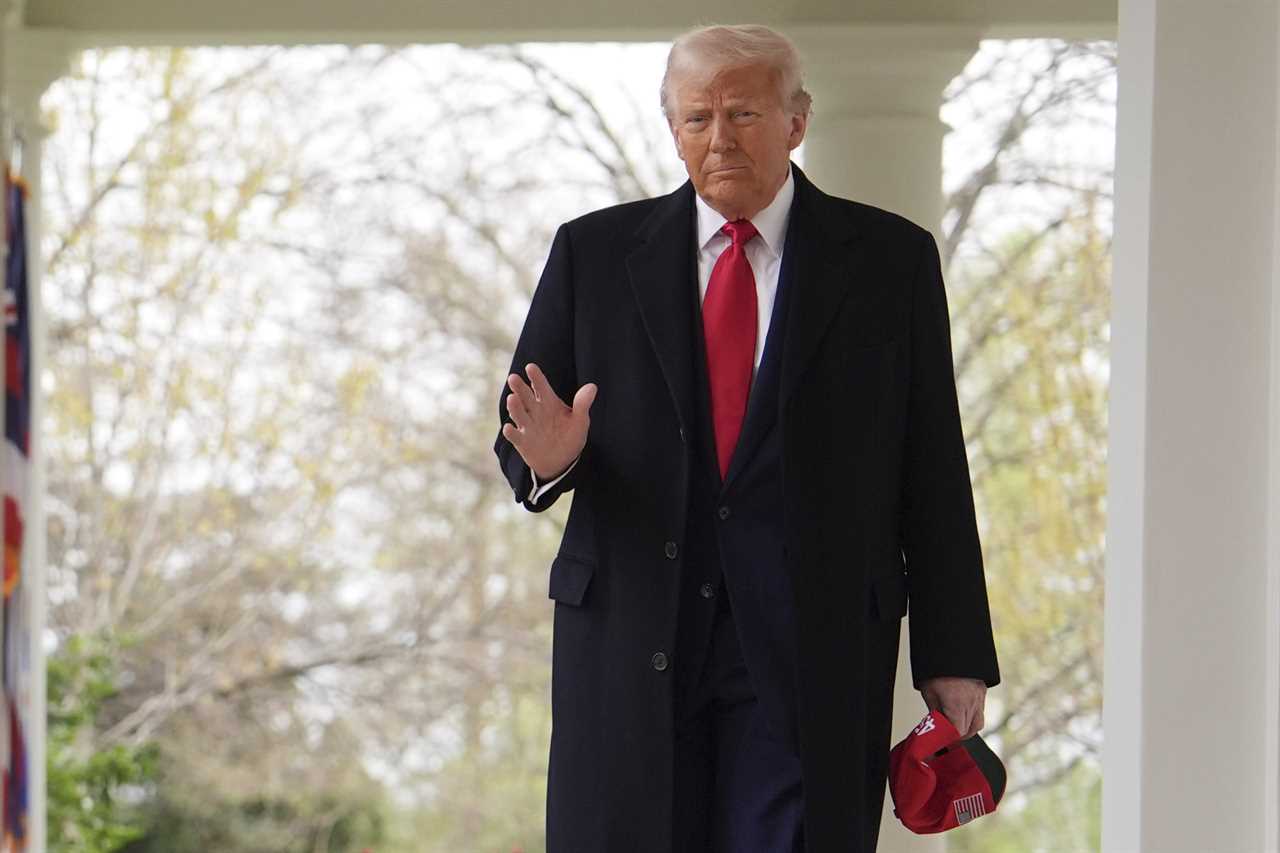
Trump’s Bold Tariff Move
Former US President Donald Trump recently signed an executive order imposing new tariffs aimed at revitalising the American economy. In a lengthy speech, he declared that these measures would "make America wealthy again," accusing foreign nations of undermining US industries and stealing jobs from American workers.
Brexit Acts as a Protective Barrier
Meanwhile, Brexit has positioned the United Kingdom to better withstand the impact of Trump’s aggressive tariff strategy. With the UK no longer bound by EU trade agreements, it can navigate its own economic path independently. This separation has allowed British businesses to avoid some of the immediate pressures that EU countries face under the new US tariffs.
Labour’s Steadfast Approach
The Labour Party has made it clear that the UK will not escalate the situation further. Party leaders have emphasised a commitment to maintaining calm and adopting a pragmatic approach in dealing with the new trade challenges. This stance aims to protect the UK's economic interests without provoking further conflict with the US administration.
Economic Talks and Negotiations
Prime Minister Keir Starmer has been actively engaging with US officials to seek a favourable economic agreement. Discussions have centred around technology and potential adjustments to the Digital Services Tax, which currently imposes a two per cent levy on major US tech firms. Additionally, the UK is open to providing easier access for American agricultural products, though it remains firm on maintaining high food standards.

Business Concerns Mount
The introduction of tariffs has created significant uncertainty for UK businesses. Companies are hesitant to invest or ship goods to the US, wary of the potential financial implications. British car manufacturers like Aston Martin and Jaguar Land Rover are particularly vulnerable, facing the brunt of the 25 per cent tariffs on steel and cars.
Small and medium-sized enterprises (SMEs) are also at risk. The Federation of Small Businesses (FSB) warns that a 10% tariff on UK exports to the US could deal a severe blow to these businesses, many of which rely heavily on the American market. Tina McKenzie, the FSB's policy chair, highlighted the potential for stifled growth and reduced opportunities due to these new trade barriers.
Lord Sugar Advises Caution
Prominent businessman Lord Sugar has cautioned against retaliatory measures, suggesting that any such actions would likely have minimal impact. Speaking on LBC Radio, he expressed skepticism about the effectiveness of negotiating with Trump, stating, "I don't know what negotiation we can have with this man. It's no good battling with him or arguing with him."
Chancellor Reeves: Prepared for All Scenarios
Chancellor Rachel Reeves has also weighed in, assuring that the UK is not out of danger even if a trade deal is reached. Speaking to the Treasury Select Committee, she emphasised the importance of securing a robust economic agreement with the US while avoiding hasty decisions that could jeopardise the nation's interests. Reeves stressed that the government is ready to support industries affected by the tariffs and is exploring all possible options to safeguard the economy.

Consumer Impact: Rising Prices
British consumers will likely feel the pinch as tariffs make imported goods more expensive. Products such as Levi's jeans, Jack Daniel's whiskey, and Harley-Davidson motorcycles could see price hikes, making them less affordable for the average household. While there is a possibility that some goods may become cheaper if companies redirect their exports from the US to the UK, the long-term risk remains significant.
There is concern that an influx of cheaper imports could overwhelm the UK market, making it difficult for local businesses to compete. This situation could result in job losses and harm to homegrown industries, ultimately affecting the broader economy.
Looking Ahead: Securing the Best Deal
The UK government remains committed to finding a balanced solution that protects national interests while fostering economic growth. Business Secretary Jonathan Reynolds announced that MPs would receive an update on the UK's response to the tariffs, indicating that all measures are being considered to defend the country's economic stability.
As negotiations continue, the focus remains on achieving a comprehensive economic deal with the US that benefits both nations. The outcome of these talks will be crucial in determining the future economic landscape for the UK in the face of ongoing global trade tensions.

Frequently Asked Questions
How does the legislative process work?
The legislative process typically involves several stages, including proposal, debate, amendment, and voting. A bill must be approved by both houses of the legislature before being sent to the head of state for approval or veto.
What is the role of a politician?
A politician is an individual who is actively involved in politics, typically as a member of a political party or a government. Their primary role includes representing the interests of their constituents, making decisions on public policy, and contributing to the legislative process.
What is the function of the executive branch?
The executive branch is responsible for implementing and enforcing laws, managing the day-to-day operations of government, and administering public policy. It is headed by the president or prime minister, depending on the country's system.
What is voter suppression?
Voter suppression refers to tactics used to discourage or prevent specific groups of people from voting. These tactics can include strict ID laws, limited access to polling places, and misinformation about voting procedures.
What is the significance of public opinion in politics?
Public opinion reflects the attitudes and beliefs of the populace regarding political issues and leaders. It can shape policy decisions, influence electoral outcomes, and motivate politicians to respond to the needs and concerns of their constituents.
What are civil rights?
Civil rights are the rights that protect individuals' freedoms from infringement by governments, social organizations, and private individuals. These rights include the right to free speech, freedom of religion, and the right to due process.
Statistics
- As of 2023, women hold 27% of seats in the global parliament, reflecting ongoing efforts toward gender equality in political representation.
- As of 2023, public trust in government institutions has declined, with only 20% of citizens expressing confidence in their national governments.
- Data reveals that around 40% of the global population lives under some form of authoritarian regime, affecting their political freedoms.
- In many countries, political parties receive about 60% of their funding from private donations, raising concerns about transparency and influence.
- Approximately 60% of eligible voters in the United States participated in the 2020 presidential election, marking the highest turnout rate in over a century.
- As of 2023, approximately 25% of countries have implemented some form of digital voting, reflecting the shift towards technology in the electoral process.
- Polling data indicates that over 50% of Americans support the idea of ranked-choice voting as a method to improve electoral fairness.
- According to recent studies, around 75% of Americans believe that campaign financing significantly impacts election outcomes.
External Links
How To
How To Educate Yourself on Political Issues
Understanding political issues requires a proactive approach. Start by identifying the topics that interest you most, such as healthcare, education, or climate change. Utilize reputable news sources, academic journals, and think tanks to gather diverse perspectives. Attend local town hall meetings, forums, or lectures to engage with experts and community leaders. Additionally, consider following podcasts or online courses that focus on political education. Engaging in discussions with friends or participating in online forums can also enhance your understanding of complex issues and current events.
 PoliticsRoyaltySoap OperaGamingMoneyPrivacy PolicyTerms And Conditions
PoliticsRoyaltySoap OperaGamingMoneyPrivacy PolicyTerms And Conditions
